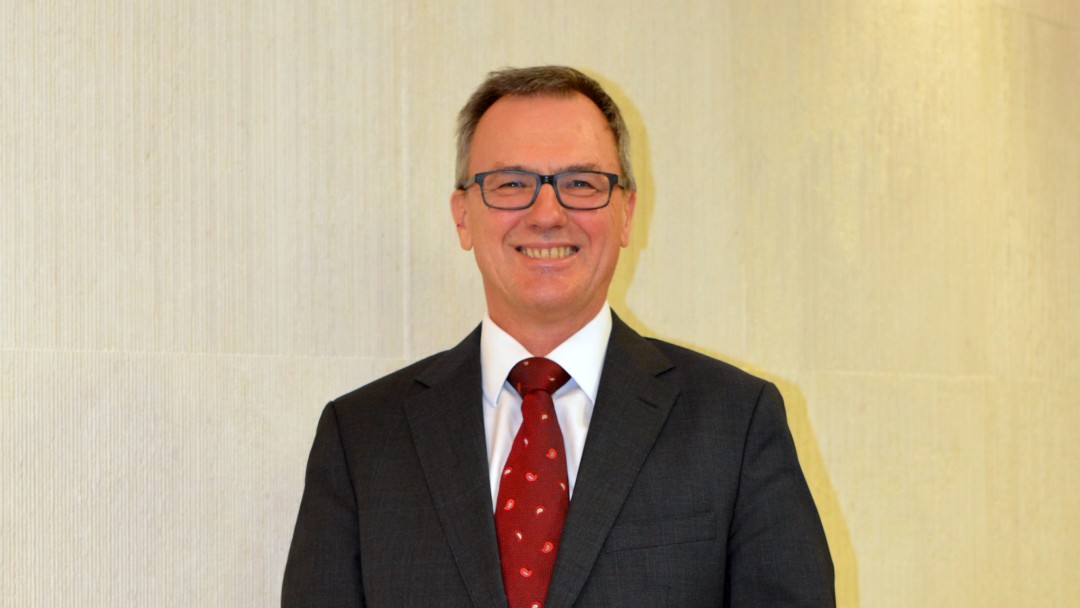News from 2015-12-17 / DEG
Spotlight on the longstanding Director of DEG’s office in Turkey
Winfried Nau
Mr. Nau, you headed DEG’s representative office in Turkey for five years. What are the factors that shape the office’s work here?
In Turkey, we work in a politically challenging, extremely dynamic entrepreneurial environment that is very interesting from an economic perspective. In Istanbul itself, there is also a high concentration of financing institutions and nationally active companies, meaning that the city is extremely important as a business hub for the region as a whole.
How is the current situation in Turkey affecting companies?
It is probably best to take a differentiated view of this. The existing political uncertainty has been reduced somewhat by the elections on 1 November, with the Justice and Development Party – which has been in power for 12 years – once again securing a clear parliamentary majority. Companies here are now hoping that the urgently necessary reforms can be implemented quickly. The country is suffering from a number of structural problems such as the high volatility of the local currency lira, still-high inflation and sluggish growth. Current economic growth is not sufficient for creating enough jobs for the young up-and-coming generation.
There is also great uncertainty in the markets on which Turkish export companies have concentrated in the past: parts of southern Europe are still suffering from an economic crisis. In Eastern Europe, and particularly in Russia and Ukraine, conditions are extremely difficult. Parts of the Middle East are in a state of war. Needless to say, this is not an easy situation for the local companies whose business is founded on these markets.
However, we are also observing that Turkish entrepreneurs are very creative when it comes to tapping into new markets and, for example, are investing in Africa or Asia. We are regularly approached with interesting ideas, ranging from cement works or power generation projects in West Africa to tourism projects on the Maldives. This also shows the dynamism of Turkish entrepreneurs and their willingness to take risks.
DEG is also active in other countries in the region, for example in Iraq. How can entrepreneurial development cooperation help to address the causes of refugee movements?
Our Istanbul office also deals with northern Iraq, Lebanon and Jordan, which poses great challenges for us. At present, very interesting approaches are being made in Jordan in the area of energy supply and involving a private equity fund. The fund, for which we are currently examining an investment, will be investing in companies not only in Jordan but in the entire region. In this way, DEG can play its part in helping local companies, which in turn can help to combat the causes of refugee movements by generating growth and creating jobs.
How do you see the economic outlook of Turkey in the medium term and the opportunities for companies that are active there?
I would say that the medium-term economic prospects are good. Turkey has a large domestic market with almost 80 million inhabitants, many of whom are young and keen to consume. The Turkish business community is very dynamic and, in the past high-growth years, has produced a series of larger companies that have held their own very well on international markets.
In order to make better use of the existing potential and also to step up its exports, Turkey must undertake a number of further key steps, above all in the industrial sector. In addition to the aforementioned structural reforms, it is important to ensure greater reliability for investors as well as marked improvements in education and a significant increase in domestic savings. Through better overall conditions, it is possible to attract more foreign investors who can strengthen the long-term status of Turkey as an industrial centre. What is needed above all at present is a greater real net output ratio. The local economy is still too dependent on foreign supplies. If Turkey addresses these issues resolutely, its prospects for the future are very good indeed.
Winfried Nau headed DEG’s representative office in Istanbul until the end of December 2015. He is now returning to Germany. He is succeeded by Florian Münkle, who has been working at DEG for eight years.


Share page
To share the content of this page with your network, click on one of the icons below.
Note on data protection: When you share content, your personal data is transferred to the selected network.
Data protection
Alternatively, you can also copy the short link: https://www.deginvest.de/s/endBZF67.BOHA
Copy link Link copied